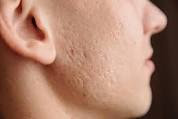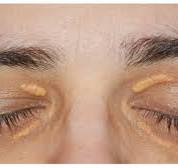Skin Fungal Infections: Causes, Symptoms, and Remedies
Introduction:
Skin fungal infections, also known as dermatophytosis or ringworm, are common conditions caused by fungi that thrive on the skin's surface or within its layers. These infections can affect people of all ages and backgrounds, leading to discomfort, itching, and skin irritation. In this comprehensive guide, we'll delve into the causes of skin fungal infections, explore their symptoms, and discuss various remedies to help alleviate and manage these bothersome conditions
Causes of Skin Fungal Infections:
Fungal Species: Skin fungal infections are primarily caused by dermatophytes, a group of fungi that thrive in warm, moist environments. Common dermatophyte species implicated in skin infections include Trichophyton, Microsporum, and Epidermophyton. These fungi can spread through direct contact with infected individuals, animals, or contaminated surfaces.
Warm and Humid Environments: Warm and humid environments create ideal conditions for fungal growth and proliferation on the skin. Sweaty clothing, tight-fitting shoes, and damp communal areas, such as locker rooms, swimming pools, and gym facilities, increase the risk of fungal infection transmission and recurrence.
Weakened Immune System: Individuals with weakened immune systems, such as those living with HIV/AIDS, undergoing chemotherapy, or taking immunosuppressive medications, are more susceptible to fungal infections. A compromised immune response allows fungi to colonize and invade the skin more easily, leading to persistent or recurrent infections.
Skin Trauma or Injury: Skin trauma or injury, such as cuts, abrasions, or puncture wounds, can create entry points for fungal pathogens to invade and colonize the skin. Athletes, dancers, and individuals engaged in activities that cause repetitive friction or trauma to the skin are at higher risk of fungal infections, particularly in areas prone to moisture and friction.
Poor Hygiene Practices: Poor hygiene practices, such as infrequent bathing, improper drying of skin folds, and sharing contaminated personal items, can facilitate the spread of fungal infections. Maintaining good personal hygiene, including regular bathing, drying skin thoroughly, and avoiding sharing towels or clothing, is essential for preventing fungal infections.
Symptoms of Skin Fungal Infections:
Redness and Rash: Skin fungal infections typically present as red, inflamed rashes with well-defined borders. The affected area may appear raised, scaly, or blistered and may be accompanied by itching, burning, or stinging sensations.
Itching and Irritation: Itching, a hallmark symptom of skin fungal infections, is caused by the body's immune response to fungal invasion and the release of inflammatory mediators. Persistent scratching can exacerbate symptoms and lead to secondary bacterial infections or skin damage.
Scaling and Flaking: Skin fungal infections may cause scaling, flaking, or peeling of the skin, particularly in areas prone to friction or moisture, such as the groin, armpits, and between the toes. These symptoms may worsen with prolonged fungal colonization and lack of treatment.
Circular or Ring-Shaped Lesions: Certain types of fungal infections, such as ringworm (tinea corporis) and jock itch (tinea cruris), produce circular or ring-shaped lesions with raised edges and clearer centers. These characteristic lesions may spread outward and merge with neighboring patches over time.
Nail Changes: Fungal infections can affect the nails, causing changes in color, texture, and shape. Nail changes associated with fungal infection may include thickening, yellowing, brittleness, crumbling, or separation of the nail from the nail bed.
Remedies for Skin Fungal Infections:
Antifungal Medications: Topical antifungal medications, such as clotrimazole, miconazole, terbinafine, and ketoconazole, are commonly used to treat skin fungal infections. These medications work by inhibiting fungal growth and destroying fungal cells, thereby relieving symptoms and promoting healing.
Oral Antifungal Medications: Severe or recurrent skin fungal infections may require oral antifungal medications, such as fluconazole, itraconazole, or griseofulvin, for systemic treatment. Oral antifungal medications are prescribed for extensive or difficult-to-treat infections that do not respond adequately to topical treatments.
Antifungal Powders and Sprays: Antifungal powders and sprays containing ingredients such as miconazole or tolnaftate can help control fungal growth and prevent infection spread in areas prone to moisture and friction, such as the feet, groin, and armpits. These products are particularly useful for athletes and individuals with active lifestyles.
Proper Hygiene Practices: Practicing good personal hygiene is essential for preventing and managing skin fungal infections. This includes regular bathing with soap and water, drying skin thoroughly, wearing clean, breathable clothing, and avoiding sharing personal items, such as towels or clothing, with others.
Avoiding Irritants and Triggers: Avoiding irritants and triggers that exacerbate fungal infections, such as tight-fitting clothing, sweaty footwear, and harsh chemicals, can help alleviate symptoms and prevent infection recurrence. Wearing loose-fitting, breathable clothing and choosing moisture-wicking fabrics can reduce moisture buildup and minimize fungal growth.
Conclusion:
Skin fungal infections are common conditions caused by fungi that thrive on the skin's surface or within its layers. These infections can cause redness, itching, scaling, and discomfort, affecting individuals of all ages and backgrounds. By understanding the causes and symptoms of skin fungal infections and adopting appropriate remedies and preventive measures, individuals can effectively manage these bothersome conditions and promote healthier skin. It's essential to consult with a dermatologist or healthcare professional for accurate diagnosis and personalized treatment recommendations tailored to individual needs and preferences. With proper care, hygiene practices, and adherence to treatment recommendations, individuals can minimize the impact of skin fungal infections and enjoy clearer, more comfortable skin.
Call now on our Mobile 8669086098 for booking an appointment





Comments
Post a Comment